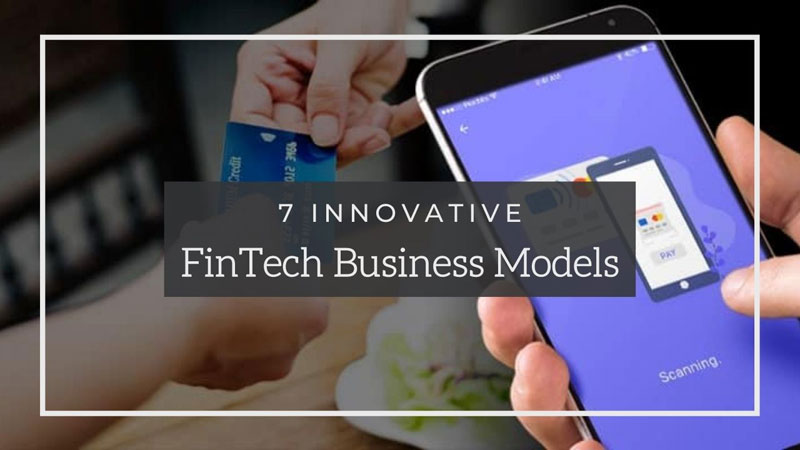FinTech businesses have gained momentum in the past few years. From opening bank accounts to managing assets digitally, FinTech businesses are changing the conventional models of banking. Just a few years ago, a majority of our payments used to be cash-based. But today digital payments have started taking place of cash.
If you are also looking to enter into the FinTech business, then you have to make a profitable FinTech payment platform for your business. If you think that it is not easy for you to make a payment platform then you can hire a software development team or you can assign your app development work to remote developers.
In this blog, we will provide you with a better understanding of the FinTech business models.
7 FinTech models that you should know
FinTech stands for financial technology and describes innovations that can improve the application of financial services. Fintech solutions provide a lot of facilities to users such as cloud computing, algorithms, accurate analytics, etc. If you are someone who is looking to leverage the benefits of FinTech then you need to use digital FinTech software solutions in your business. But before you start, check out the latest FinTech models:
1. Alternative credit scoring
Self-employed people are unable to pass on the conventional loan screening process due to the rigid and strict credit rating criteria of traditional banks. Today, some credit resting agencies have also started considering percentile scoring and social signals among the borrower groups.
Such alternative data get sync with the AI-based algorithms that can ease the lending decisions. Banks can avoid loan recovery if it finds a negative profile before loan disbursement.
2. Blockchain and cryptocurrency
The crypto space has continuously been in the limelight since its inception. Blockchain is a type of database which stores data in blocks that are chained together. On the other hand, cryptocurrency is a medium of exchange like dollar or pound. It uses multiple encryption techniques to control asset creation and to verify fund transfers.
With this advanced technology, financial transactions can be done safely and securely. Once data gets recorded in the blockchain databases then it is not easy to manipulate it. Blockchain technology has also encouraged the development of multiple peers to peer platforms that can facilitate financial transactions in a decentralised way.
3. Peer to peer lending
Peer to peer lending is a system when a person borrows or lends money to someone. The same concept is used for the FinTech businesses and banks also. A business can anytime borrow money from another business.
By using this model, investors can get better returns than those offered in the traditional debt markets. FinTech companies can build robust platforms that allow multiple borrowers and lenders to earn from the repayment option.
4. Alternative insurance underwriting
While providing insurance to the customer, traditional insurance companies do not consider all the parameters. Let us explore this in detail with an example. Let us say there are two persons who are non-alcoholics and non-smokers. Both are paying the same premium. One person is highly fitness conscious while the other one is not taking much care of his health. The insurance companies will normalise both the cases and make mistakes in calculating the premium.
With advancements in technologies, FinTech companies have also started providing insurance services to their customers. Their goal is to provide seamless insurance services by eliminating the limitations of conventional insurance companies. They are computing medical history and lifestyle data before giving insurance to their customers.
By using the latest algorithms, finTech companies can decide whether to give insurance or not, what terms and conditions need to be added, and which payment options have to be provided to the customers. In this way, the premiums can be planned more accurately.
5. Digital asset management
Fintech companies are not just providing the financial services to customers but it also provides an attractive opportunity to the investors to sell their products in exchange of data. Then the Fintech companies transfer this data to the big traders who are capable of influencing the asset prices. The difference between the amount saved from the trading fees and the little increase in the prices is quite reasonable.
6. Neo Banking
For making banking services more seamless and simple, many FinTech businesses have started opting the ‘Neo Bank’ model. But before going deep into neo banking, let us understand its meaning first. Neo bank is the virtual bank which does not have physical branches. It solely operates through a mobile app.
With the goal of providing better customer experience, neo banks provide better services than traditional banks. Also, they can easily integrate the whole platform into a single portfolio. Account opening, loan allotments, budgeting, and money transfer are some services offered by neo banks. Some neo banks have also specialised in managing the whole banking stack for offering services over the digital platform.
7. Instant small loans
Banks generally do not prefer to deal in the smaller ticket loans due to lower margins. FinTechs are also offering small loans nowadays. These loans are tailored as per the short-term needs of the customers such as home loans, education loans, business loans, Flexi loans, etc.
Small loans get underwritten at zero percent interest so that you can purchase anything and pay later in installments.
Final Words
With the above business models, digital FinTech companies can easily start their operations, earn their customers faster, grow rapidly and can raise more funding for their ventures. Also, this space has expanded a lot with the increasing partnerships of businesses with banks.
So this is the right time for you to enter in the FinTech markets. If you want to get the benefits of the FinTech revolution, then you have to make a feature-rich digital FinTech solution that can help you to provide an efficient way of managing finances to your customers.
I hope we have provided you with detailed information about the FinTech models of current times. Feel free to connect with us if you still want to know more. Thanks for reading this blog.











Leave a Reply